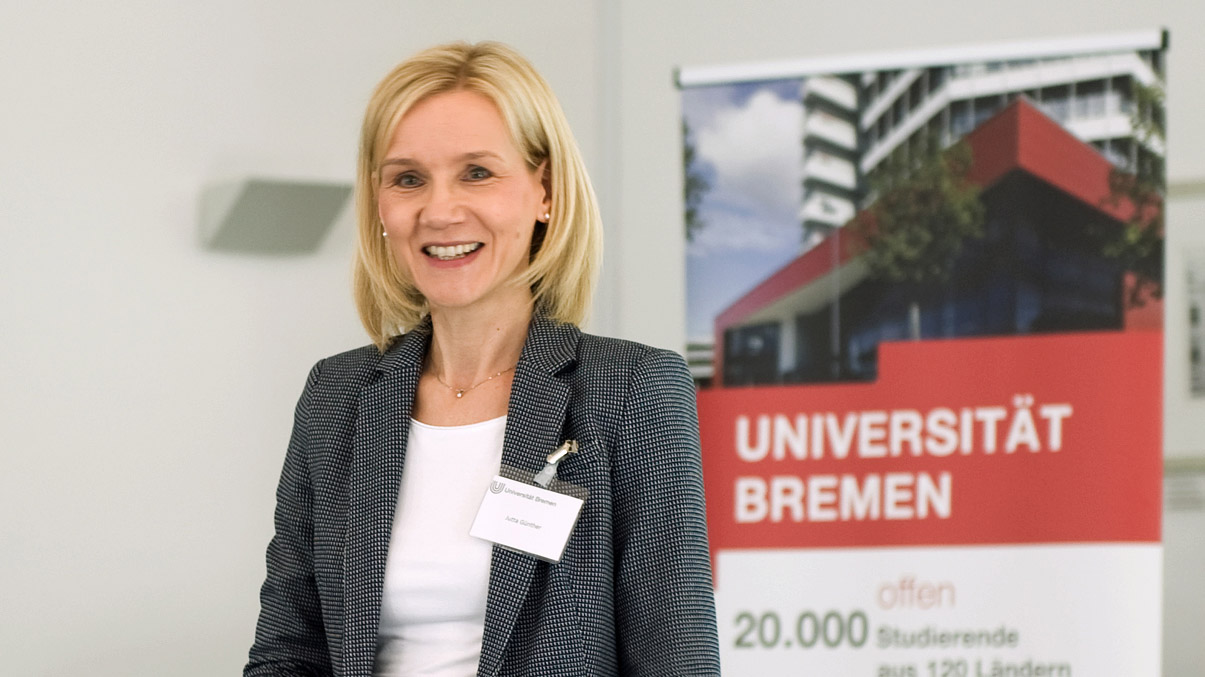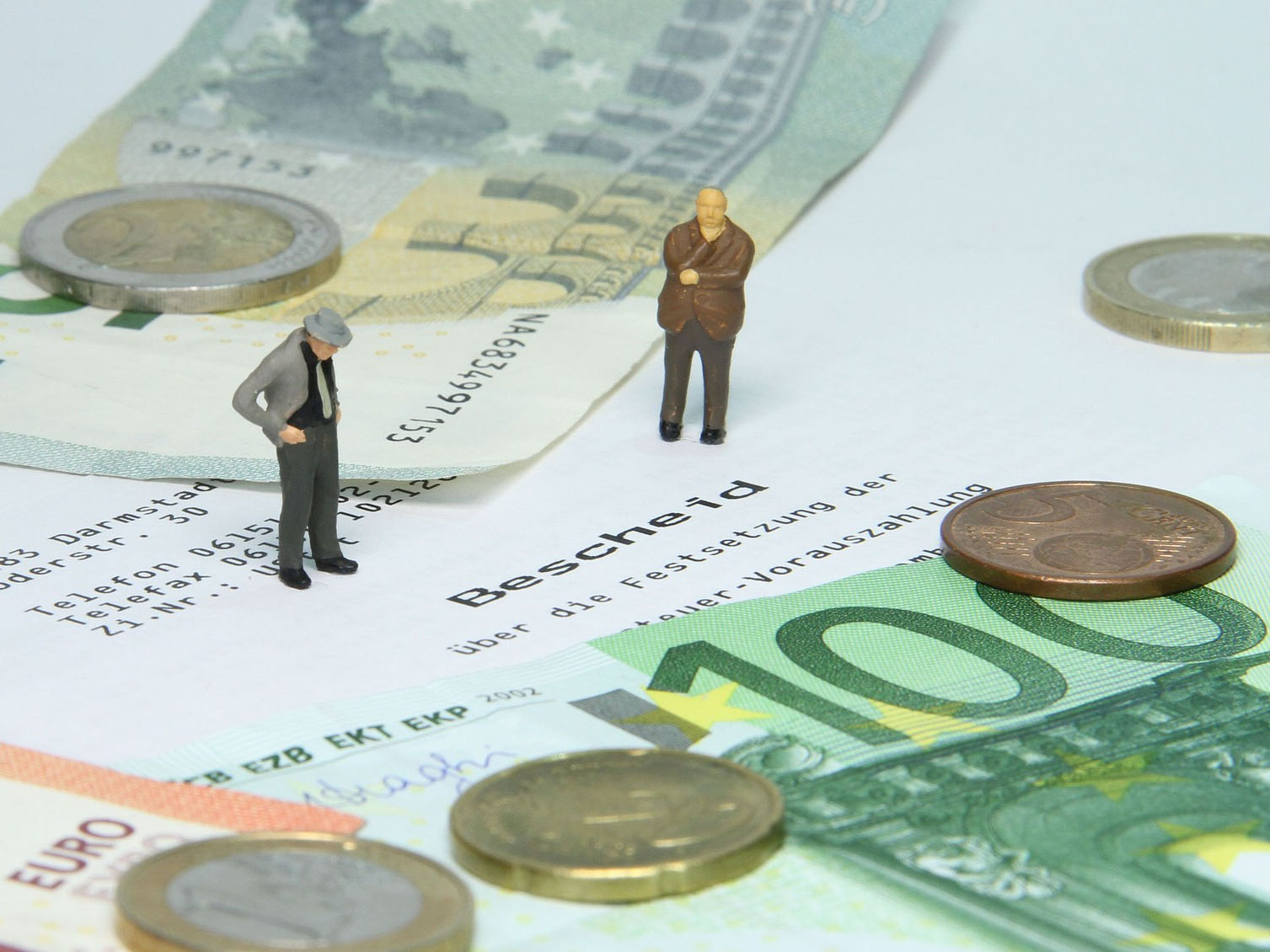
© Universität Bremen
“The Crisis Is Accelerating Structural Change”
Money appears to have no boundaries when it is needed to support the economy and society in the middle of the corona crisis. But how will it all be funded? An interview with the economist Professor Jutta Günther.
How times change: A few weeks ago, the government was insisting on economic discipline and breaking even in the frame of the debt brake. However, in the times of corona, the cash register is suddenly open and billions of euros are being pumped into the market to support the economy and society. Jutta Günther, professor of economics at the University of Bremen, explains what consequences this behavior has for the national economy and the citizens.
Ms. Günther, the corona lockdown means that there is a flagging economy with dramatic sales losses, the fear of losing jobs, the self-employed in fear of losing their livelihood, a rise in reduced-hours compensation and Hartz IV benefits – the list goes on. The government is reacting with a targeted influx of money. Where are the billions coming from?
Germany is borrowing the money on the financial market. We are getting ourselves into massive debt. It is actually banned due to the debt brake anchored within the German constitution, but this is a type of natural catastrophe – and one with an unknown extent. That disables the debt brake. The enormous economic and aid schemes cannot be financed in any other way.
Do you, as an economist, not get scared when a country suddenly takes on such a great amount of debt?
What is currently happening has never happened before. It greatly exceeds what happened during the international economic and financial crisis of 2008/2009. Of course, it gives one an uneasy feeling. However, it would make me, as an economist, even more worried if nothing were to happen. In such crises, the government must counteract quickly and with force so that we do not enter an unstoppable downward spiral. The political sector has done the right thing with the measures implemented so far. Most economists agree on this. We cannot risk a total economic loss.

© Roman Synkevych / Unsplash
“Effective Long-Term Investments Are Needed Now”
The new debts do not end with the current financial injections. A run-down economy pays less taxes into the national treasury…
Production downtimes and lower revenue also mean lower tax intake. That’s on top of it all. That is why in terms of the support we need to make sure that there are also effective long-term investments that will strengthen the economy and infrastructure in the future. Prior to the corona crisis, the big societal challenges of climate change and digitalization were explicitly named. The investments have to be steered towards these and similar channels that will economically strengthen us in the future. A crisis is always a chance – it accelerates structural change. The old will disappear more quickly and the new will develop.
Is new debt not relativized by the fact that all economies worldwide have the same problem? If all countries across the world add two or three zeros to their debt, then it evens itself out.
It is easy to think like that, but it is a fallacy. Economists always observe the relationship between a country’s debt and its economic performance – the so-called debt ratio. If a lot is being spent – as it is now – but a lot is also coming in, there is no problem. However, the situation is actually that a few zeros are being added to our debt but our economic performance – the gross inland product – is becoming less. That makes economists nervous. It is not right to say that we’re all in the same boat and can take on debt cheerfully. It is also possible that there might be further “impact”. If we need to employ counteractive measures again it would surely end in a bottomless pit.

© Wilfried Pohnke / Pixabay
“The Traditional Financing Method is Increasing Taxes and Duties”
Federal Minister of Finance Olaf Scholz has announced that it is intended that the additional debt be paid back from 2023 onwards. If you add up all schemes, this will mean around one or two trillion euros. Where is the money going to come from? Many citizens are scared that there will be much higher taxes or even special levy.
It is still to early to make concrete statements. Economic history has taught us that the tradition financing method is in fact to increase taxes and duties – in some cases special levy. When and how exactly this debt will be paid is still speculative and will be comprehensively negotiated by the political sector and society. Issues of burden distribution, thus if those who earn well must carry more than the socially vulnerable, will surely also be discussed.
How do you perceive the scientific discussion of the current economic measures? Is there a clear direction or are your colleagues in disagreement?
As was the case in 2008/2009, the majority of us are in agreement that the government must counteract immensely. There are rather discussions on which exact measures should be implemented and where financial aid should go. The details of economic policy conceptualization are always passionately discussed in our circles – as is right in science.
In addition to your role in teaching and research, you took on the role of vice president research at the University of Bremen several weeks ago. How has your day-to-day life on both levels been changed by the crisis?
I held my first online lecture as a livestream today – with 500 students! It worked well in terms of the technology. However, I found it irritating that I could not see the audience. Reading from the faces of students is very helpful for me as a lecturer in a big lecture hall. One the other hand, intermediate questions or “putting your hand up” worked better than in a lecture hall. Digital factors are taking up a great deal of my time, whether this be in my work on the University Executive Board or when communicating with my large departmental team. These are all things that we knew were coming – it just happened very quickly.
Profile:
Jutta Günther (52) completed her PhD within the Faculty of Economics and Social Sciences. In 2014, she moved with several staff members from the Leibniz Institute for Economic Research in Halle (IWH) to the Faculty of Business Studies & Economics at the University of Bremen. There, the professor of economics works mainly on issues of structural change and innovation with around 20 people in an international team. On April 1, 2020, she took on the role of vice president research.